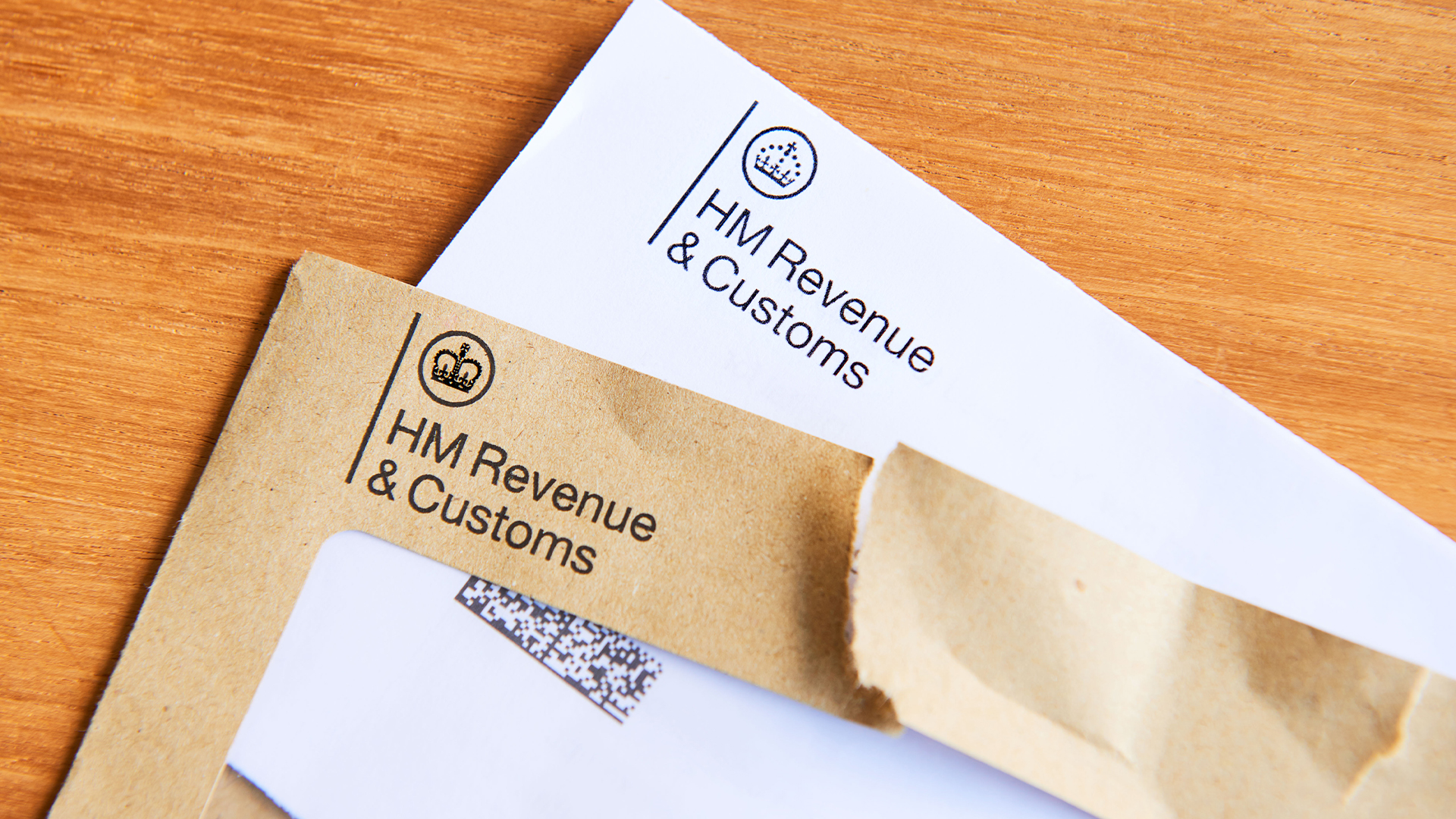100,000 accounts have been hit in a HMRC scam campaign, but the tax office says it wasn't hacked – here's why
Organized criminals used phished data to set up dodgy HMRC accounts and demand tax rebates


The UK's tax revenue service has lost £47 million in a breach that started last year and impacted 100,000 people.
The HMRC told the treasury select committee yesterday that the account scam was the result of "organized crime" that set up PAYE, or ‘Pay As You Earn’, accounts for individual taxpayers and used them to claim refunds.
"This was organized crime phishing for identity data out of HMRC systems, so stuff that banks and others will also unfortunately experience, and then trying to use that data to create PAYE accounts to pay themselves a repayment and/or access an existing account," HMRC CEO John-Paul Marks said, according to media reports.
The total amount stolen was £47 million, though Marks said that no individual would face any financial loss from the incident. HMRC said that individuals' own money wasn't targeted..
"This was an attempt to claim money from HMRC, not an attempt to take any money from you," it said on the HMRC website.
What happened?
The incident appeared to have happened last year, with a subsequent investigation resulting in arrests. It was unclear why the incident is only now being revealed — a point raised by the treasury select committee itself, with Chair Dame Meg Hillier offering "a word to the wise" to advise parliament of such matters rather than let the committee hear about it from the news.
HMRC officials stressed that its systems weren't directly attacked nor breached, but instead involved criminals setting up new accounts in the name of people who didn't need a tax account and didn't have one already set up. The criminals did so using information from phishing attacks or elsewhere, according to HMRC.
Sign up today and you will receive a free copy of our Future Focus 2025 report - the leading guidance on AI, cybersecurity and other IT challenges as per 700+ senior executives
However, as the incident was being investigated and addressed, the "nature of the attack altered", said Angela MacDonald, HMRC’s deputy CEO, with the methods used by the attackers evolving throughout time.
"What has been a challenge in terms of... cleaning the accounts up is being clear that we were then talking to the genuine customer and not in fact talking to the criminal who was on the other end of the account," she added, according to the BBC.
Was HMRC hacked?
MacDonald said that the incident was "not a cyber attack, we have not been hacked, we have not had data extracted from us."
She later clarified: "The ability for somebody to breach your systems and to extract data, to hold you to ransomware and all of those things, that is a cyber-attack. That is not what has happened here."
The clarification seems designed to make clear this incident isn't akin to the recent round of cyber attacks against retailers, which has left M&S struggling to recover — though it may also be a reaction to accusations from five years ago that the HMRC was "incompetent" following 11 serious data breaches.
However, treasury select committee Chair Dame Meg Hillier didn't seem to accept the distinction: "Money was got. By criminals. By penetrating the digital system. A lot of people would consider that a cyber crime, however you define it."
Will Richmond-Coggan, a partner specializing in data and cyber disputes at Freeths LLP, suggested the incident showed the impact of previous attacks.
“While HMRC were at pains to stress that their own systems had not been compromised in a cyber attack, this incident nonetheless underscores how widespread the consequences of cyber incidents can be," he noted.
"It is clear from HMRC's explanation that the crime against HMRC was only possible because of earlier data breaches and cyber attacks. Those earlier attacks put personal data in the hands of the criminals which enabled them to impersonate tax payers and apply successfully to claim back tax."
What next?
In a statement given to the press, HMRC said it has “acted to protect customers identifying attempts to access a very small minority of tax accounts”.
The tax office added that it’s currently working with law enforcement agencies in “both the UK and overseas” to find those responsible.
HMRC said on its website that it had locked down all affected accounts, deleted impacted login credentials, removed any incorrect information from tax records, and checked that no other details were changed. It has also written to affected users to let them know. Letters should arrive over the next three weeks.
Any individuals seeking to check their account themselves could sign in, head to Settings in their Profile, and view the sign-in history to look for suspicious activity.
MORE FROM ITPRO
Freelance journalist Nicole Kobie first started writing for ITPro in 2007, with bylines in New Scientist, Wired, PC Pro and many more.
Nicole the author of a book about the history of technology, The Long History of the Future.
-
 What is Microsoft Maia?
What is Microsoft Maia?Explainer Microsoft's in-house chip is planned to a core aspect of Microsoft Copilot and future Azure AI offerings
-
 If Satya Nadella wants us to take AI seriously, let’s forget about mass adoption and start with a return on investment for those already using it
If Satya Nadella wants us to take AI seriously, let’s forget about mass adoption and start with a return on investment for those already using itOpinion If Satya Nadella wants us to take AI seriously, let's start with ROI for businesses
-
 Microsoft warns of rising AitM phishing attacks on energy sector
Microsoft warns of rising AitM phishing attacks on energy sectorNews The campaign abused SharePoint file sharing services to deliver phishing payloads and altered inbox rules to maintain persistence
-
 LastPass issues alert as customers targeted in new phishing campaign
LastPass issues alert as customers targeted in new phishing campaignNews LastPass has urged customers to be on the alert for phishing emails amidst an ongoing scam campaign that encourages users to backup vaults.
-
 Hacked London council warns 100,000 households at risk of follow-up scams
Hacked London council warns 100,000 households at risk of follow-up scamsNews The council is warning residents they may be at increased risk of phishing scams in the wake of the cyber attack.
-
 Warning issued as surge in OAuth device code phishing leads to M365 account takeovers
Warning issued as surge in OAuth device code phishing leads to M365 account takeoversNews Successful attacks enable full M365 account access, opening the door to data theft, lateral movement, and persistent compromise
-
 Complacent Gen Z and Millennial workers are more likely to be duped by social engineering attacks
Complacent Gen Z and Millennial workers are more likely to be duped by social engineering attacksNews Overconfidence and a lack of security training are putting organizations at risk
-
 The Scattered Lapsus$ Hunters group is targeting Zendesk customers – here’s what you need to know
The Scattered Lapsus$ Hunters group is targeting Zendesk customers – here’s what you need to knowNews The group appears to be infecting support and help-desk personnel with remote access trojans and other forms of malware
-
 Google wants to take hackers to court
Google wants to take hackers to courtNews You don't have a package waiting for you, it's a scam – and Google is fighting back
-
 77% of security leaders say they'd fire staff who fall for phishing scams, even though they've done the same thing
77% of security leaders say they'd fire staff who fall for phishing scams, even though they've done the same thingNews A new report uncovers worrying complacency amongst IT and security leaders
